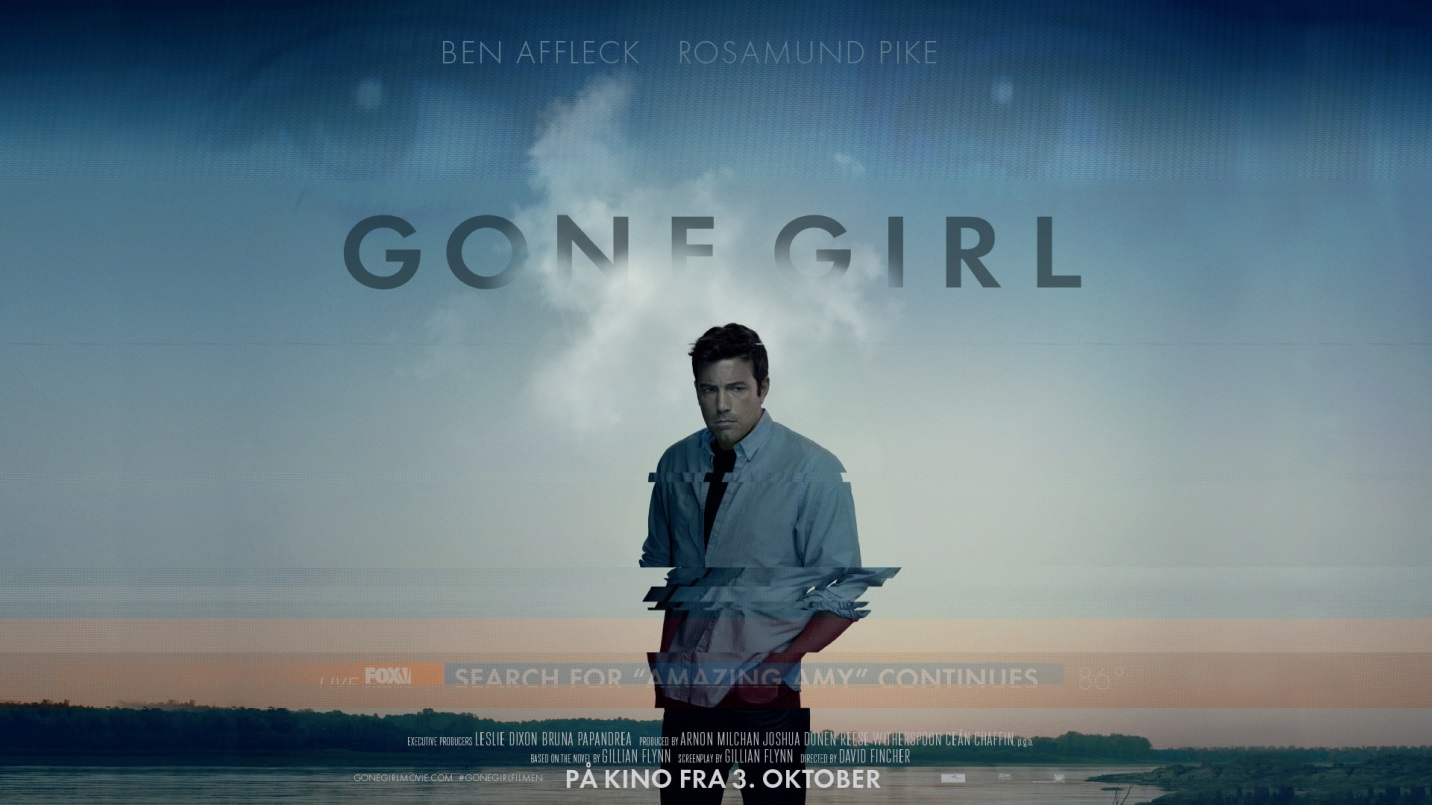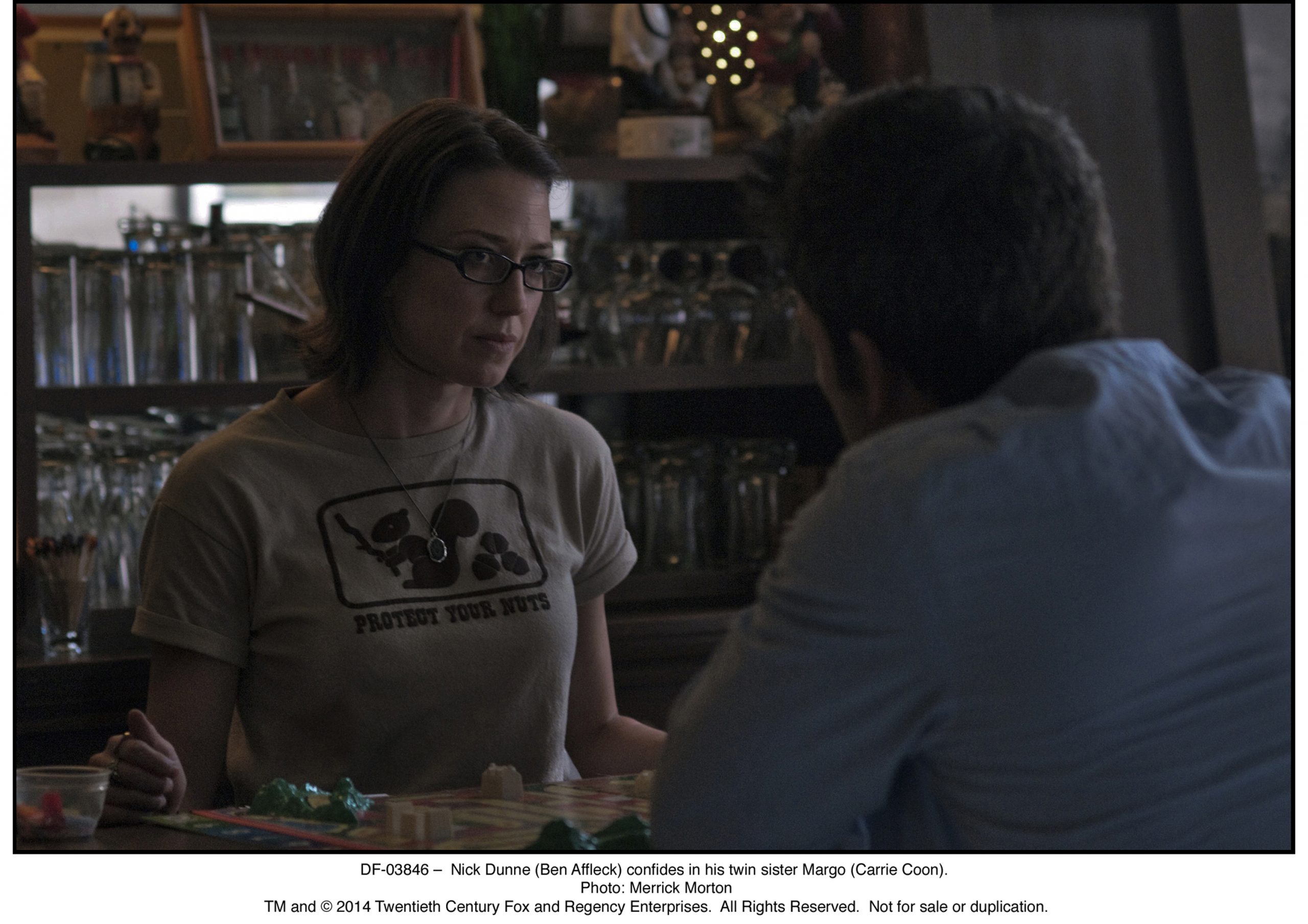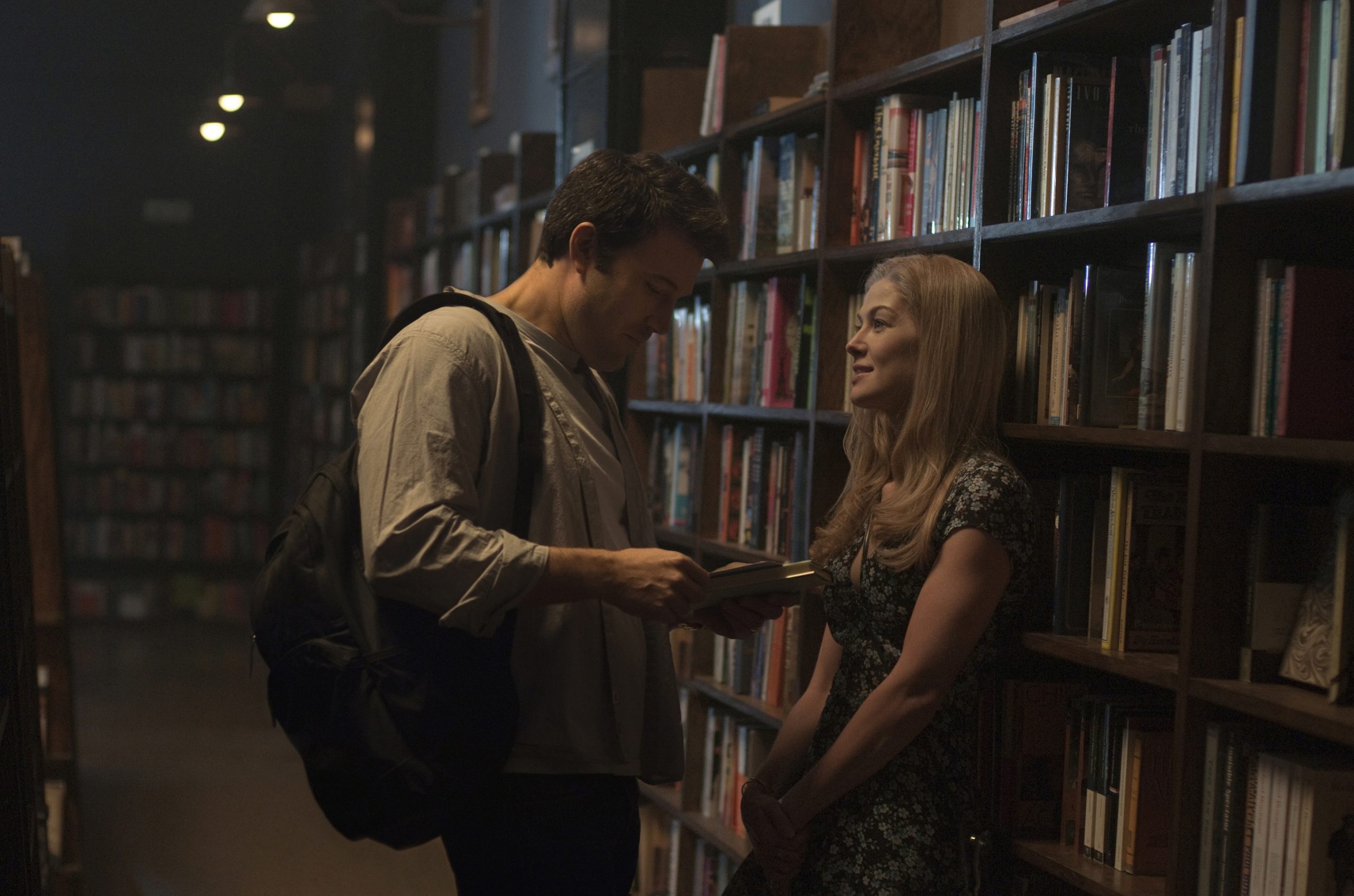🎬 Gone Girl (2014)

🎬 Gone Girl (2014): A Tale of Love, Betrayal, and Deception
Enter the intricately woven and suspenseful world of Gone Girl (2014), a psychological thriller directed by the masterful David Fincher. Adapted from Gillian Flynn’s gripping novel, this film explores the dark complexities of marriage, media, and identity, keeping audiences hooked from start to finish with its shocking twists, masterful storytelling, and unforgettable performances.

The story begins on the fifth wedding anniversary of Nick Dunne (Ben Affleck) and his wife, Amy (Rosamund Pike), a couple who initially seem to embody the picture-perfect marriage. But when Amy goes missing under mysterious circumstances, Nick’s life spirals into chaos. As police investigations uncover troubling inconsistencies in his story, Nick finds himself thrust into the media spotlight, portrayed as a cold and untrustworthy husband. The public scrutiny intensifies as evidence and Amy’s diary entries suggest Nick’s involvement in her disappearance, painting a picture of a deeply troubled marriage riddled with lies and resentment.
Amy’s character, revealed through flashbacks and diary passages, is far more than the “cool girl” she once portrayed herself to be. Rosamund Pike delivers a mesmerizing performance, portraying Amy with a chilling blend of fragility, cunning, and ruthlessness. Her portrayal of a woman capable of meticulously planning her disappearance—and much more—earned her widespread acclaim, including an Academy Award nomination for Best Actress. Pike’s nuanced performance elevates Amy from a victim to a complex anti-heroine, whose motivations and actions defy simple categorization.

Fincher’s direction, characterized by its meticulous attention to detail and atmospheric tension, transforms Flynn’s already gripping narrative into a visual masterpiece. The film’s haunting score, composed by Trent Reznor and Atticus Ross, underscores the mounting tension, immersing viewers in the characters’ psychological turmoil. The cinematography, with its muted tones and stark contrasts, mirrors the film’s exploration of the dualities within relationships: love and hate, trust and betrayal, truth and lies.
The story delves deep into themes of societal expectations, identity, and the facades people construct to maintain appearances. It critiques the media’s penchant for sensationalism, exposing how public opinion can be manipulated through perception rather than facts. The film also examines the pressures of modern relationships, unearthing the darker realities lurking beneath the surface of seemingly happy unions.
As Gone Girl unfolds, its shocking twists challenge audiences to question their assumptions about guilt, innocence, and the true nature of the characters. Amy’s transformation into one of cinema’s most fascinating and manipulative figures solidifies the film’s place as a modern classic. The intricate plot keeps viewers guessing until the very end, culminating in a conclusion that is as unsettling as it is thought-provoking.

A perfect blend of suspense, dark humor, and psychological depth, Gone Girl is a rollercoaster of emotions. It’s a story that lingers long after the credits roll, sparking debates about morality, justice, and the intricate games people play in relationships.











